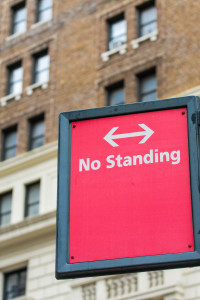
** Supreme Court Holds in TCPA Case That a Rule 68 Offer or Relief Does Not Moot Class Claims Under Rule 23 ** . . .
By: Brent E. Johnson
In the case of Campbell-Ewald Co. v. Gomez (No. 14-857), the Supreme Court issued a writ of certiorari to the Ninth Circuit to resolve a circuit split on the issue of whether a Rule 68 offer of judgment for complete relief to a putative class representative moots his claim thereby preventing him from serving as a class representative under Rule 23. See previous post. The underlying case concerns unsolicited text messages from an advertising company prohibited by the Telephone Consumer Protection Act (TCPA) 47 U.S.C. § 227. The defendant company offered Mr. Gomez the statutory TCPA remedy (trebled) and even agreed to a stipulated injunction prohibiting it from further violations the TCPA. Gomez rejected the offer. The defendant argued that its offer, which provided complete relief, mooted Gomez’s claim and he therefore did not have Article III standing. The Supreme Court ruled on January 20, 2016 (in a 6-3 decision) that an unaccepted settlement offer does not moot a plaintiff’s case. Campbell-Ewald Co. v. Gomez, 577 U. S. ____ (2016). The conservative-leaning court in recent years has issued rulings that put restrictions on class action lawsuits but did not continue that trend in this case. Justice Ginsburg delivered the opinion of the Court joined by Justices Kennedy, Breyer, Sotomayor, and Kagan with Justice Thomas concurring. Chief Justice Roberts filed a dissenting opinion, in which Justices Scalia and Alito joined. Notably, the ruling is limited in scope, with Justice Ginsburg pointing out that the Court was not deciding how a case would be resolved if the settlement funds had been deposited into an account payable to the plaintiff and the trial court then entered judgment in that amount. In reaching its determination that a rejected settlement offer does not moot a complaint, the majority pointed to Rule 68’s sanction – that the offeree must pay the offeror’s costs after the offer was made. This may turn out to be a silver lining for defendants in certain types of class actions, such as consumer cases, where it is unlikely that the class representative will obtain the full amount of his claim if the case were to proceed to trial. Costs in class action litigation are no small matter.


 ** Maker of “Brain Training” Subscription Service Settles with FTC on Allegations that it did not Have the Science to Back Up its Claims of Cognitive Benefit ** . . .
** Maker of “Brain Training” Subscription Service Settles with FTC on Allegations that it did not Have the Science to Back Up its Claims of Cognitive Benefit ** . . . 